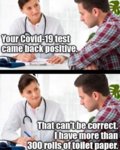PAWTUCKET, R.I. — David Norton, who helps to run a community center in this small Rhode Island city, is not a scientist. Neither were the board members who gathered for an emergency meeting last week, to decide whether the risk of contagion meant they should cancel their upcoming events.
They sat together — a nurse, a civil servant, a therapist, an insurance executive — and tried to decode the guidance given by state and federal authorities.
Rhode Island’s governor, Gina Raimondo, had urged community leaders to cancel gatherings larger than 250. On the other hand, Pawtucket’s public schools were still open. Then again, a private school nearby, the site of the state’s first coronavirus outbreak, had closed for two weeks.
Boston had canceled its St. Patrick’s Day parade, but Newport had not. Movie theaters and malls were open. But Disneyworld was closing. In the end, members threw up their hands and canceled most everything through the end of April.
“It’s totally ad hoc,” Norton said. “There’s no science behind it, or reasoning. It’s not like we were following someone’s instructions.”
Without clear guidance from the government, “it feels like we’ve been left on our own to decide what would be best,” he said. “There’s a lot of room for error. In Singapore or Japan, if it’s canceled, it’s canceled.”
Welcome to public health, American style.

www.independent.co.uk




